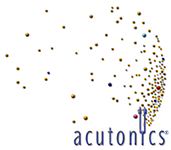Compassion is the response to human vulnerability and a desire to act on another’s behalf to ease their pain and suffering. Research into the act of compassion has demonstrated that when we feel compassion the heart rate slows down, oxytocin is released, and the areas of the brain that are linked to pleasure and empathy light up. Compassion also promotes social connection, increased levels of well-being, decreased stress and anxiety as well as heightened hope and optimism. Additionally, self-compassion has been shown to reduce the severity of PTSD symptoms.
Compassion is also of immeasurable value to a healthy society with the power to ease the pain of another, dampen hateful acts, and promote kindness. Compassion also fosters understanding and creative problem solving as well as a deeper understanding of human fallibility so that we are able to view the suffering of others with empathy and a desire to create lasting, meaningful change for a more just and peaceful society. Unfortunately, a year into a global pandemic Compassion Fatigue and Secondary Traumatic Stress (STS) is rampant. With more than 500,000 deaths attributed to Covid 19 in the US alone, political unrest, and the rise in white supremacy, anxiety, stress and personal and collective grief is at all-time high, opioid addictions, alcohol dependency and suicides have risen exponentially. We are being called to learn new skills to navigate our lives amidst a pandemic, racial and political unrest, and unprecedented divisions.
Compassion Fatigue or Secondary Traumatic Stress (STS) in health care providers, and essential workers is a topic that has been front and center for me during this past year. It was the focus of my doctoral research in psychology and seven year later, remains my primary research focus. Identifying ways to help front line care providers particularly in the hard-hit Indigenous communities is also something that we have been discussing with the WU Project, the non-profit organization founded by senior faculty member Alicia Villamarin and Acutonics Practitioner Maria Romero, with the mission to serve care providers by providing them with the tools they need to promote well-being for themselves and their community. We are so fortunate to have proven techniques to reduce suffering of others and promote harmony and well-being.
There are many terms used to describe care giver stress, and there are nuanced differences among these terms, but they have come to represent converging lines by which to examine professional quality of life for care providers, emergency responders, and frontline workers. They share a central premise that people exposed to the severe pain of others, whether the result of illness, terror, loss, human cruelty, or trauma, begin to experience pain and suffering similar to those that they are trying to help. Compassion fatigue is generally linked to Secondary Traumatic Stress (STS) disorder and equivalent to posttraumatic stress disorder (PTSD). Although, unlike PTSD the cause of STS is more likely the result of the work we engage in, in service to others. Empathy, kindness, and deep concern for others over time can take an enormous toll on physical, emotional and spiritual well-being.
Severe stress and trauma influence all aspects of the body – through a physical embodiment that impacts not just the brain, but our muscles, nervous system and perceptions of the world. It can also contribute to stress-induced immune dysfunction with significant implications for health, that emerges when environmental demands exceed the individual’s ability to cope. Even if a person does not appear to have a trauma-related disorder, it is important to recognize that compassion fatigue, STS or severe stress, impacts one’s life in significant ways. There are both physical and emotional symptoms such as arthritis, headaches, chronic pain, sleep disorders, heightened anxiety, depression and substance abuse. You might also see signs of impaired cognitive performance, suppressed thyroid function, blood sugar imbalances, decreased bone density, decrease in muscle tissue, a weakened immune function, increased abdominal fat, and increased risk of heart disease.
From the perspective of East Asian Medicine, the two primary systems that are impacted by severe stress and trauma are the Heart (Shen) and the Kidney (ZHI). The Secondary systems are the Liver (Hum) and the Spleen (Yi).
The heart is the root of life, the seat of Shen, the master of blood, and the commander of the vessels. When the heart is out of balance we may see lack of enthusiasm and vitality, mental restlessness, depression, insomnia, despair, confusion, anxiety, fidgeting, being easily startled, loss of vitality and spirit. Symptoms of an imbalance in this organ might present as insomnia, heart palpitations, irregular heartbeat, flashbacks, excessive dreaming, poor memory or concentration difficulties, dizziness, spontaneous sweating, flashbacks.
The Kidney relates to our Zhi the drive, energy, will and purpose that guides our life and destiny so that we are able to move with fluidity and grace. When we experience severe stress secondary traumatic stress or trauma there may be feelings of fear, and insecurity, helplessness or horror as well as a lack of willpower, becoming withdrawn or isolated.
The secondary systems include the Liver and Spleen. The Liver stores the blood and is responsible for smooth flow of Blood and Qi. The emotion associated with the spleen is anger, and there may be resentment, frustration, irritability and moodiness. The emotion associated with the Spleen is worry and overthinking, and pensiveness.
A fairly simple proven approach to reduce Compassion Fatigue is to work with the Three Treasures, represented by three specific points of the body, DU 20, Gate of the Ancestors provides access to our heavenly Qi, Ren 17, Original Child, Center of Our Inner Storehouse of Light mediates between heaven and Earth, and Ren 4, Origin Pass or Gateway to Origin connects with our core and deepens our connection to the Earth. These points can be accessed with touch or with direct sound, placing tuning forks on the points, or using Hand Chimes in the field over the points.
There are also three points in the wrist known as Buddha’s Triangle that can greatly help with stress, anxiety depression and trauma. P 6, Inner Pass, helps to connect the outer situation of life with the reality of our inner essence so that we can call our hearts home. HT 7, Spirit Gate is the source point of the heart and LU 9, Great Abyss, helps us to assimilate challenges and emerge from grief and pain.
Although Extraordinary Vessels and supporting points can be added, the goal of this treatment is to keep it simple and to focus on the use of The Three Treasures, perhaps with the addition of Buddha’s triangle, this simple treatment has shown a very powerful reduction in severe stress.
Ways to Think About the Unity that is represented through The Three Treasures:
- Mind – Body – Spirit
- Past – Present — Future
- Heart — Kidney— Brain
- Upper—Middle — Lower Elixir Fields
- Jing — Qi — Shen
- Energy — Vitality — Spirit
- Heaven — Earth— Humanity
- Outer — Inner — Center
- Yin—Yang — Non-duality
The Three Treasures are the embodiment of mind-body-spirit medicine deeply embedded in the Taoist and shamanistic understanding of East Asian Medicine. The treasures embody the triplex unity of Heaven, Earth and Humanity they strengthen the rich connections between the natural world, our personal world and the Cosmos itself. Accessing and strengthening these powerful points provides a rich foundation to reduce stress, to acknowledge what our heart yearns for and to identify what it feels like to return to center, the place of hope and promise, a secure feeling of home. By accessing these points, we invite the body to remember how it feels to live in balance, health and harmony. This is true physiological and psychological coherence that results in a reduction of Compassion Fatigue.
Work with just the Ohm Unison or Ohm Octave Tuning Forks, begin by listening, and then Ground on KID 1, Bubbling Spring. Apply the forks to DU 20, follow with Ren 4, and complete the Sequence on Ren 17. If you wish to add to this treatment apply Mars/Venus to the Three Treasures, in the same sequence, which helps us to balance the disparate parts of our self and consider using Ohm/Chiron or Chiron Octave. Remember that Chiron is a teacher and wounded healer who transcends his own wounding, and represents our desire to address deep psychological wounds, physical and psychological scars, abuse, trauma, injuries or illness that are slow to heal, and old patterns that inhibit personal progress
The recent addition to our Celestial family of Hygiea, also invites a new approach to the Three Treasures, as she serves as their guardian she lights up all of the layers, body, mind, spirit, organic, emotional and psycho-spiritual and helps to lift us up with renewed clarity and fortitude. Use the Hygiea Octave on the Three Treasures.
Remember to ground on KID 1 at the conclusion of your session.
Embracing the Three Treasures in a Metal Ox year provides an opportunity to address our severe stress and to find a return to center uniting our outer and inner realities with a newfound sense of balance. It is a time when we can set realistic goals for self-care, inviting us to create healthy boundaries, a new framework and structure for forward momentum that invites a return to hope and joy from a place of empathy and kindness. Many blessings as you journey through this powerful year.

